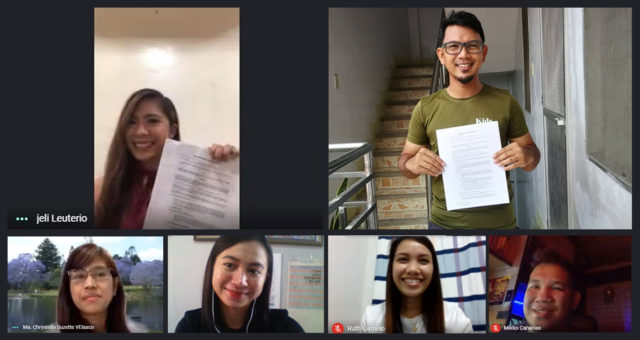
Until the end of the Pleistocene period, most people inhabiting the planet were hunter-gatherers. Between 8500 and 2500 BC, people transitioned to farming at different times and places around the world. In the Philippines, early Filipinos have invented various ways of farming and one of its greatest accomplishments is Ifugao’s rice terraces.
Farming plays significant role in the Philippine Economy. It involves 36 percent of Filipino Workers and contributes 20 percent of the Gross Domestic Product. Agriculture, in general, is the key economic driver of the economy especially in rural areas. Farmers have a great importance and role in the society because they are the ones who cultivates and grow the food we need for proper living.
However, a farmer’s job is sometimes stigmatized as a dirty poor-man’s job. The Philippines is in danger of a possibility to face a massive extinction of farmers with the recent census of 16 to 89 years old Filipinos have shown that the majority of our farmers’ age range from 50 to 59 years old, with an average of age 53 years old. A farmer’s job, if not addressed significantly, will become a dying job. Another key factor is the rapid spread of urbanization to the farmlands; and has chased down every plot of land intended for farming to create housing and commercial spaces. With less farmers who plant and farmlands to cultivate, production will become less, and prices of the basic necessities like fresh food will also inflate. These two key factors are issues that are threat to the country’s food security.
If we can teach the kids a fun way to farm and earn from it, what would the world be if the youth will be the fore front in addressing its food security?
To address these impending issues of food security and extend its community partnerships, HOLY CHILD College of Davao inked a Memorandum of Understanding (MOU) with KIDS WHO FARM (KWF) last January 26, 2021 via Google Classroom. KWF is an initiative founded by a father and daughter team Munneer and Raaina Hinay based in Zamboanga City that aims to teach kids, out of school youth, and women about the importance of farming and food production through fun online classes like urban container gardening.
HOLY CHILD’s partnership with KWF drew back from August of 2020 when KWF was invited to become one of HOLY CHILD’s guest speakers on a webinar about urban container gardening. Its success was then followed by another webinar and now in partnership with HOLY CHILD Earth Warriors Club.
Students, parents and teachers who joined the webinars have sent their photos and successful stories after trying their own backyard mini gardens. It was fun to see kids, knowing the importance of food production at a very young age.
With the signed partnership with KWF, HOLY CHILD will be having series of activities and more technology transfer webinars that will aim to establish and recreate the success of KWF in Zamboanga City to Davao City. These activities will also include training on hydroponics, agro-enterprise, financial interest, and youth participation in community development.
In the face of the pandemic, HOLY CHILD has seen this opportunity to reach out to more communities to help them ease down the effects and struggles everyone is facing during this time of uncertainty. It was also last year, when HOLY CHILD partnered with the city’s agriculture office to help displaced farmers during the pandemic through the HOLY CHILD Online Community Market. Now, the partnership with KWF is just one of many others that the school is aiming to do. HOLY CHILD is now looking forward to partner with various local communities, corporate companies and different organizations to make these endeavours even more possible and successful.
MIKKO C. CANARIAS







